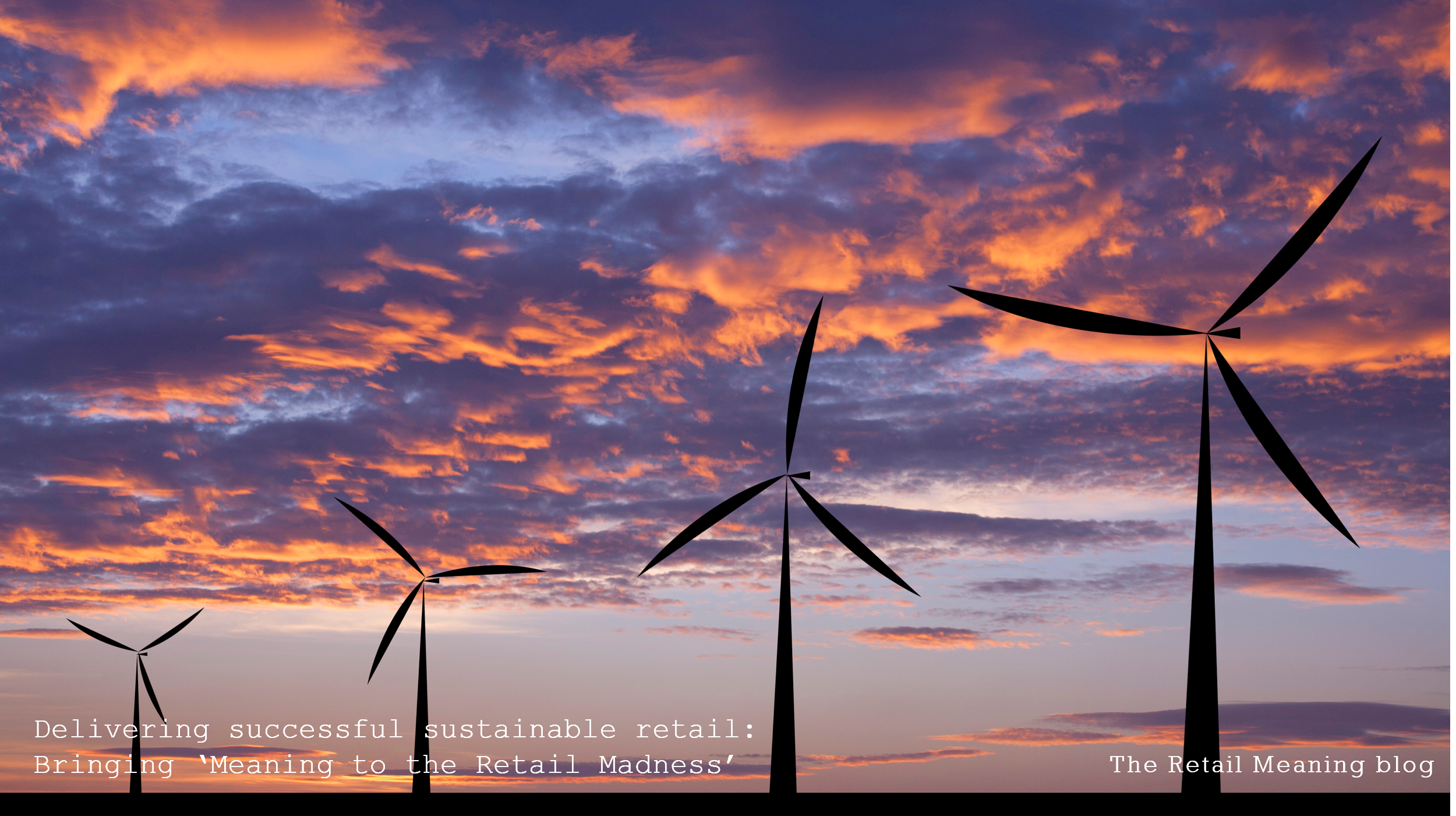Retail is balancing on an unprecedented tightrope of change. Between the precipice of exploitative disaster, and the leap to sustainability and a commercially viable circular future.
Where do you begin as a sustainable retailer? Opportunities are emerging for businesses of all sizes, scenarios and origins, to engage with the growing customer sentiment for products made and sold in sustainable ways.
The direction is not going to change. The speed of adoption is only going to increase further.
A combination of new technologies, and enlightened driven people, are evolving new business models, and channels to market. Niche businesses such as product rental, and resale are now becoming mainstream, harnessing the power of customer communities, e-commerce and engaging social marketing.
At the same time, new technologies and worldwide collaborations are being developed to create incredible new environmentally safe materials from the natural world, and from the recycling of existing materials and products. Supply chains and assortment structures are being re-built and created for reusability, recyclability and re-invention.
Consumers, manufacturers, brands and retailers are together re-discovering the ‘value in individual things’
However, finding your way through the maze of opportunities is far from easy. Traditional businesses have the double dilemma of learning new processes and technologies, whilst striving to forget and discard the values and practices that have driven commercial success for so long.
Whilst new start-ups riding the crest of sustainability and technological waves, will soon need to engage with the traditional retail expertise and knowledge that will be required to establish, stabilise, and grow their businesses.
Sustainable businesses will have ‘no divine right’ to commercial success, as more entrants emerge, and traditional retailers learn how to be genuinely sustainable. As with every step of retail evolution, only the strongest, cleverest and most efficient will make it to the age when all retail will be sustainable.
Introducing the new book:
“Meaning in the Retail Madness – How to be an essential retailer”
‘Meaning in the Retail Madness’ guides and inspires both traditional and start-up brands to be sustainable, and commercially successful.
To be a commercially successful and sustainable retail business you will need to work and excel across many areas – coordinating across touchpoints from new sale, re-sale and rental, integrating diverse supply chains, raw materials development and collaborations, evolving circularity in recycling and being recyclable, communicating re-newed brand propositions and marketing, applying workforce diversification and diversity, sustainable marketing & education, distant and local community building, delivering sustainable shops & infrastructure and encouraging the ‘sustainability passion supply chain.’
Areas covered by ‘Meaning in the Retail Madness’ include:
Integrated Buying & Merchandising
Raw materials, and existing products, must become the common ‘lifeblood’ for the dynamic product assortment. Buyers & merchandisers must not only consider new materials & products, but the re-use and re-allocation from previous seasons, both sold and unsold.
People Education & training:
Priority for education should be awareness and expertise across the buying and selling functions on raw materials. Sustainability is ultimately always built on raw materials. sometimes to me remade into new garments, or to be resold and reused as garments. Expertise in raw materials is essential for brand authority.
Vertically Integrated Supply Chains:
The development, and possible ownership of strong symbiotic relationships through supply chains. Whether products are developed internally, requiring materials suppliers and developers and manufacturers, or whether your assortment is ‘gathered’ from existing owners, or even if you enable customers to rent and resell their possessions, the supply chain needs to be considered, and protected, as the most important asset of your business.
Customer lifecycles & ‘Sustainability Lock’in’
As traditional consumers, suppliers or advocates, your retail customers are your business. Customers may enter several different relationships with you at different times, from suppliers, to buyers, to renters, and even crowd-funders. Your customer processes and management must create a consistent and compelling brand ‘sustainable lock’in’ that always keeps them close and engaged.
The New Landscape for Retail Business Communities.
The ‘Age of Disruption’ has profound implications for how retail businesses should be organised and structured to deliver sustainability. The physical and emotional heart is shifting from the ‘buying powerhouse’ to ‘sustainable communities’
The Collaborative Structure.
Traditional organisational structures will become meaningless. They will no longer reflect the balance of power. They will need to reflect the diverse and dynamic collaborations that are required. Becoming genuinely sustainable is too big a task for one business can manage.
‘Intelligent’ Retail Intelligence.
Retail intelligence must be placed at the heart of every retail business. Retailers must follow the ‘hearts’ of their customers on sustainability, using a combination of technology and people to analyse and understand them
Dissolving ‘sustainable silos’
Businesses must avoid external perceptions, and internal operations, that segment and separate new sales, resales, renting, reinventing. Resources must combine to deliver each proposition as a single business
The Perpetually Active Retailer.
Sustainability will never stop evolving. Successful business are always improving, always energetic. ‘Damaging dynamics’ improvise, irritate and interrupt due to isolated planning. Retailers need to synchronise, to evolve, to enrich and to expand.
